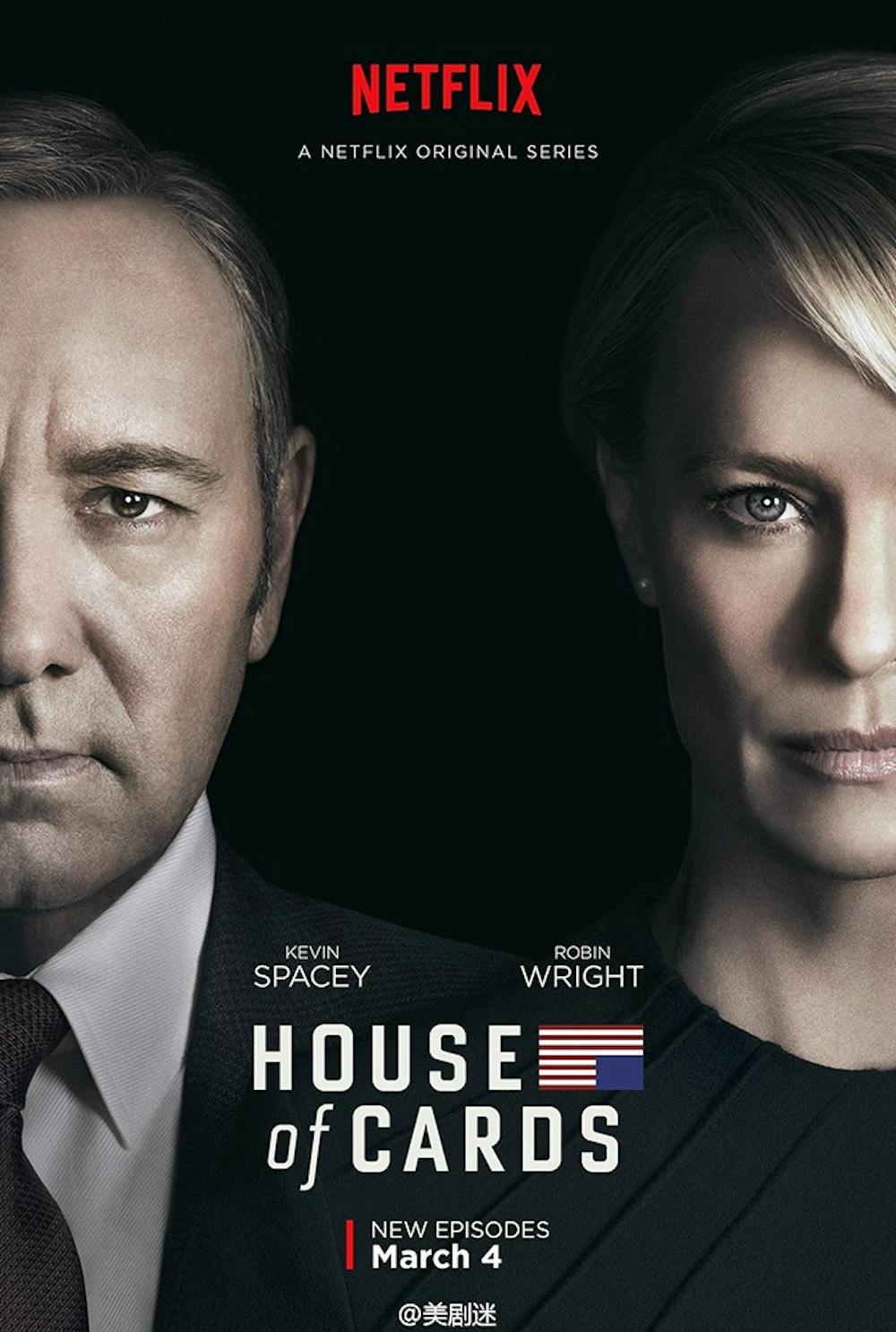Netflix recently released the fourth season of their wildly popular, critically acclaimed political drama “House of Cards.” As with the first three seasons, all 13 episodes of season four were released at once, allowing and encouraging audiences to devour the show as fast as they could. Ever since its inauguration in 2013, this is how “House of Cards” has been consumed: its early popularity helped define the now-ubiquitous practice of binge-watching.
In return, binge-watching has helped “House of Cards.” Mainlining thirteen episodes of any television show within a short period of time has a dizzying effect, blurring plot lines together, which leave the viewer overwhelmed and unconcerned with the nuances of story. After hours and hours of back-to-back immersion, what endures is not a weak storyline glossed over in a later episode but, instead, a broader notion of how the show felt — and “House of Cards” excels in creating atmosphere. It’s clean, well-acted and beautiful to look at.
That alone does not make it a great show. However, there are a number of head-scratching incidents in the show’s fourth season.
For the first six or so episodes, Frank (Kevin Spacey) and Claire (Robin Wright) Underwood, once paragons of teamwork, are pitted against each other. Their former give-and-take made watching their symbiotically evil relationship the most entertaining part of the show’s early seasons.
With the Underwoods on opposite sides, each becomes less compelling. Their relationship with each other is the only thing which keeps them even remotely human; when separated, they become too strange and too monstrous to understand.
Similarly inscrutable is Doug Stamper (Michael Kelly). One moment he’s suffocating a colleague with a water glass, and the next he’s donating thousands of dollars to the memorial fund of a man he doesn’t know. Is he ambitious or insane? Is his devotion to his boss supposed to be touching or unhealthy? The audience has no idea, and it seems like the writers don’t, either.
There are other dubious moments within “House of Cards.” A subplot with an internet surveillance company is never properly explained. There is a long saga leading to Claire’s selection as her husband’s running-mate, drawn out to no real effect. Twice, a reporter is coerced into gay activity, yet in neither instance does such luridness further the plot in a meaningful way.
That’s not to say “House of Cards” is not worth watching — in fact, at times, it’s fantastic. Frank and Claire reunite eventually, and the show improves when they do. Early collaboration between them spawns what is perhaps the best scene in the entire season. Claire practices what she will say in a negotiation with an NRA member the next day, and Frank eggs her on. “Tougher, stronger, tougher!” he insists. “We want this woman storming out of that door foaming at the mouth.” Claire obliges. This is the Underwoods at their finest: contemptible, determined, devoted, captivating.
Much of the credit for Frank and Claire’s best moments goes to Spacey and Wright, both of whom are consistently excellent actors. Wright is unflinchingly glamorous, and Spacey can coax authenticity out of Frank’s hokiest lines. Without these two, the show would hardly be as engaging as it is.
The fourth season, like the first three, is beautiful to look at. The wardrobes are fantastic, and there are breathtaking shots of the palatial environment in which the Underwoods operate. The show creates an atmosphere which is sleek and rich — it’s worth tuning in just to see Claire’s latest outfit.
Such delightful ambience goes a long way towards smoothing over the more glaring flaws in “House of Cards.” Still, it is worth remembering Slate TV critic Willa Paskin’s spot-on critique of the show: “The greatest trick Netflix ever pulled is convincing us that binge-watching is a sign that something is very good and not just a sign that something is immediately available.”





